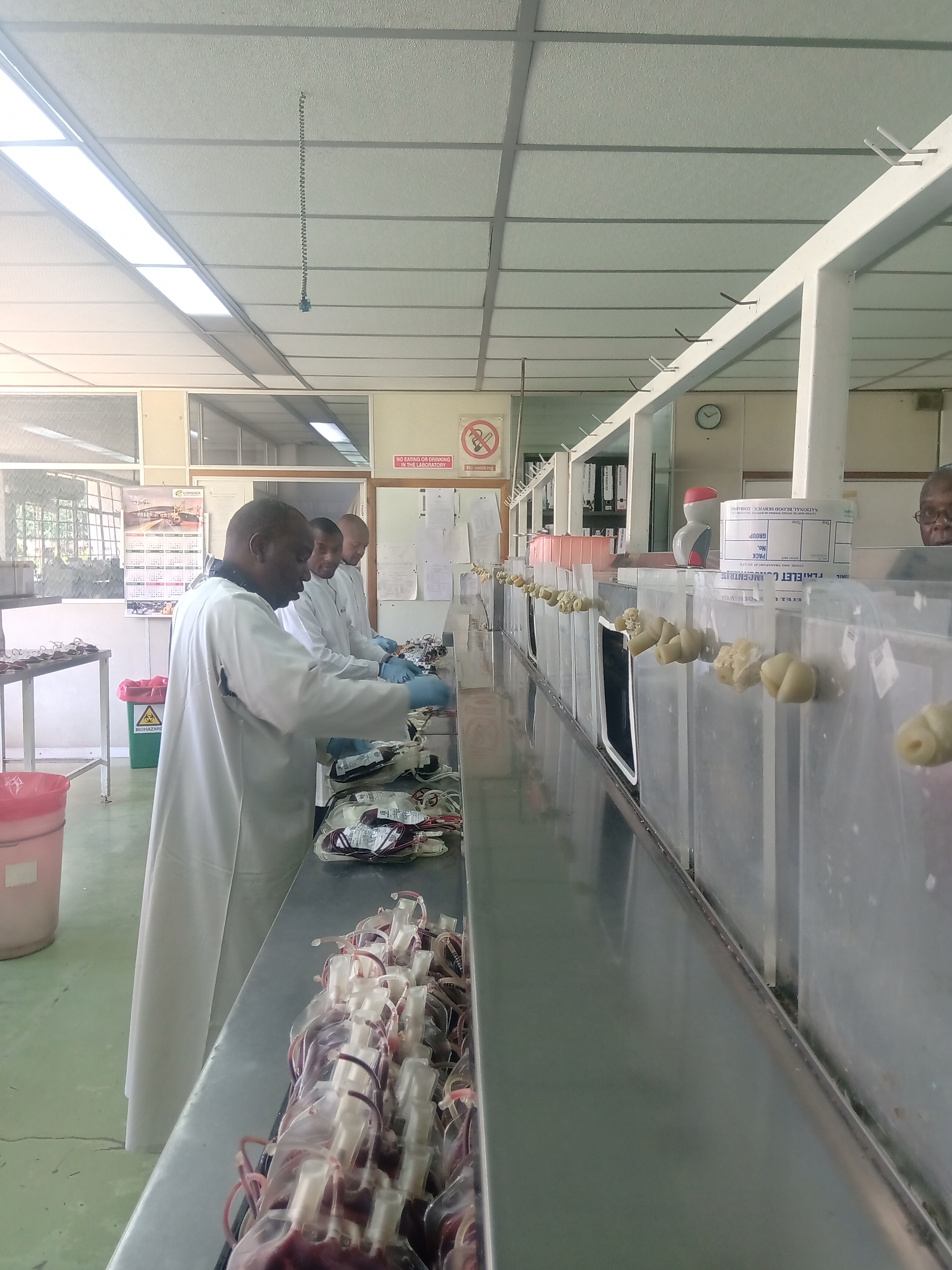George Mavunganidze, the Laboratory Services Manager of the National Blood Service Zimbabwe (NBSZ) has said consistent power supply is a critical component in the value chain for blood processing.
Mavunganidze made the remarks during a tour of the facilities on the occasion of the NBSZ Media Workshop for Harare Metropolitan Province held on Thursday 5 March 2020 in Harare.
“Consistent power supply is important in the process value chain for blood processing. After receiving blood, it should be stored at appropriate temperature during its lifespan. Blood is perishable and therefore it should be used within its viable lifespan. The lifespan for red blood cells is 42 days and blood and blood components should be stored in temperatures of between 2 degrees celsius and 6 degrees celsius hence the need for refrigerators which operate on power. We would like to thank power utility ZESA for ensuring a consistent supply of electricity for our laboratories,” Mavunganidze said.
The scientist revealed that soon after donation, the blood is initially put into blood packs before being separated into four components which are the pack cells; fresh frozen plasma; platelets and cryoprecipitates. Blood is separated by density under a process called centrifugation.
“Centrifuges are high-cost equipment sourced from Europe and the United States of America. Recently, NBSZ acquired an automated plasma separator at an estimated cost of US$70 000. For optimum operations in Harare only, we require at least 5 centrifuges. The latest automated plasma separator processes 16 bags at one goal and we require 5 of them to operate efficiently,” Mavunganidze added.

The highest demand is on red blood cells which stands at 90 percent. On the other hand, there is a high demand for platelets for cancer patients, road traffic accidents victims and for maternal cases especially for women giving birth as well as patients going for theatre whose platelet count should be boosted before the operations.
The blood donation testing laboratories caters for transfusion transmissible infections screening and testing. Zimbabwe acquired the latest technology which ensures accurate results. It has got the Abbott Architect Analysers for screening infectious diseases in the blood. The compatibility department checks if the blood product is compatible with the patient and also Factor 8 and 9 for haemophilic patients.






